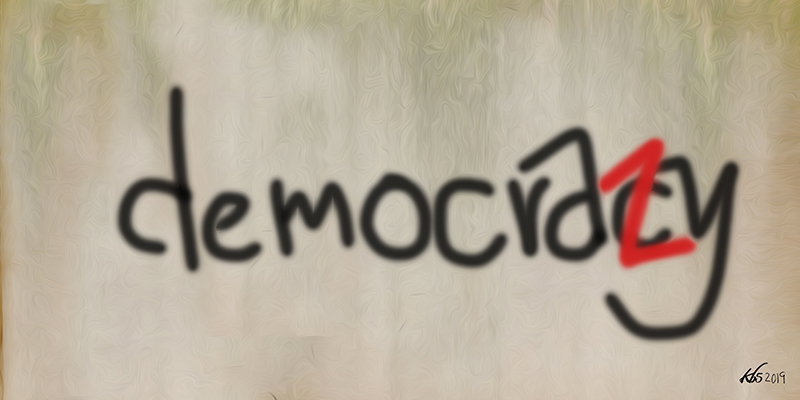In a far-reaching long-read, writer and commentator Yusuf Serunkuma argues that ‘democracy’ in Africa is not just a language of (colonial) exploitation, it is the practice of exploitation itself. Our challenge today, is to understand the colonial nature of this democracy – divide and rule, shameless free markets, foreign aid, and loans & media bombardment – and the myriad, so-called good-intentioned crusaders who promote it.
April 23, 2021
If Marx had lived during our time, he would edit his timeless phrase about religion. He would write, as religion is the opium of the masses, democracy is the crack cocaine of the elite
All the world’s new and old powers are interested in stealing from weaker countries especially in Africa. A sombre cry by novelist Ama Ato Aidoo on 500 years of European exploitation captures the painful state of affairs, and a recent meticulous study by Angus Elsby on coffee and cotton captures this ongoing pillage
Democracy as divide and rule: Lessons from Uganda
Democracy is not just a language of [colonial] exploitation, it is the practice of exploitation itself. Problematically mixed with civil liberties, democracy has inextricably, irretrievably tied the African elite to exploitative capitalism, while at the same time, exciting, distracting and completely blinding them from real concerns, or even revolution.
As Ali Mazrui, 1997 succinctly demonstrated, the humanitarian values (freedom of speech, women emancipation and empowerment, freedom of choice, religion, etc.) believed to the guaranteed as so terribly inexistent even in the so-called democracies of the west.
The west’s no-change regimes, and PR presidents
Towards regimes of authority
It is noteworthy that those few African leaders in history who actually managed to destabilise the machinery of new exploitation—euphemised as ‘free markets democracy’—had to craft something entirely different. But they were fiercely resisted
Statements, comments or opinions published in this column are of those of the author(s) and do not necessarily reflect the editorial policy of Warsan magazine. Warsan reserves the right to moderate, publish or delete a post without prior consultation with the author(s). To publish your article or your advertisement contact our editorial team at: warsan54@gmail.com

